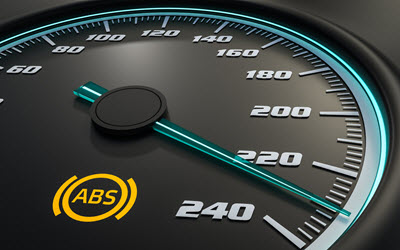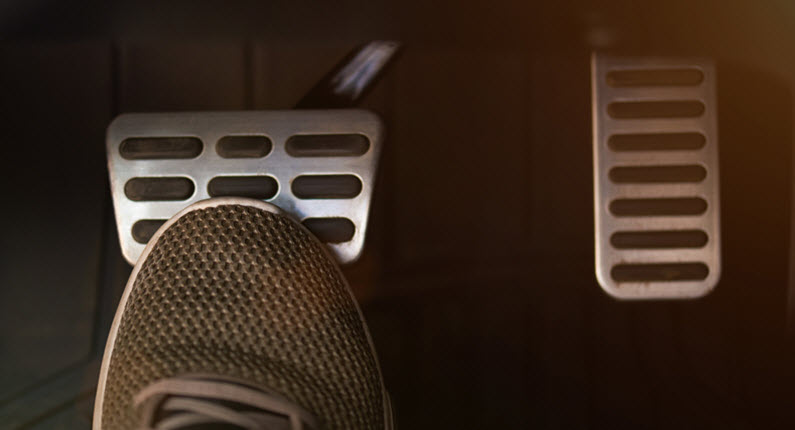Owners of Jaguars can attest that it is one of the best car brands out there, evidenced by its engine performance, unique style, and comfort on the road. The Jaguar brand is also known for its reliability and the frequent technological updates rolled out with the newer models. For any vehicle to achieve peak performance, it must be in the best conditions possible. For the Jaguar, ABS accumulator failure has been associated with the brand over time.
The ABS accumulator might not be as commonplace as other car parts you’ve heard of, but it is integral to your Jaguar. If it fails, it could impair the function of other parts of your Jaguar and incur extra cost. Hence, knowing what it means, what causes it to fail, and the symptoms are vital.
What is an ABS Accumulator?
ABS is an acronym for Anti-Braking System. The ABS accumulator is a storage device located in the engine of your Jaguar. It gathers hydraulic pressure for the sole purpose of application into the cycle of a brake system.
The application of hydraulic pressure to this cycle is responsible for your Jaguar’s safety and smooth operations on the road. An electric pump found within the braking system of your Jaguar employs nitrogen gas to generate the pressure. Sometimes, the braking systems need more pressure than the pump can generate, so the ABS accumulator serves as an alternative to providing it.
The ABS accumulator’s function is to ensure that the braking system has access to enough pressure supply without engaging the electric pump. Hence, your Jaguar can access pressure from a different source when the pressure demand is too high.
In the event of an ABS accumulator failure, your Jaguar will be unable to find a temporary pressure relief, thereby reducing the brake response, especially in cases that need emergency braking. A faulty ABS accumulator endangers the life of you and your passengers. Therefore, you should call the attention of a professional technician immediately if you notice any of the following signs:
- Unresponsive or non-resistance brake pedal: You may notice this when you try to match the brake in an emergency, and it refuses to release immediately you remove your foot. An unresponsive brake pedal indicates a failure in the ABS accumulator. Also, when the brake pedal goes up and down without any resistance, chances are the ABS accumulator is faulty.
- Brake pedals require force: Your brake pedals require a minimal amount of pressure to function. If your brake suddenly requires extra strength to function than it usually should, then the ABS accumulator is faulty.
- ABS light: The dashboard houses the ABS light of your Jaguar. It’s the most obvious sign of a failing ABS accumulator. When the light comes up, it means that there is a problem with your ABS accumulator that requires immediate attention.
Causes of a Faulty ABS Accumulator
A myriad of factors can cause ABS accumulators to fail, and they include:
- Wear and tear of diaphragm: A thick rubber diaphragm separates the hydraulic fluid from nitrogen gas. Whenever there’s too much pressure in the ABS, the diaphragm pushes down. Because the diaphragm is made of rubber, it gets worn out with time or heat, making it impossible to store and build pressure for the brake.
- Drop-in Nitrogen pressure: Nitrogen gas and the ABS work hand-in-hand to keep the accumulator pressurized. The accumulator’s pressure drops too whenever the nitrogen pressure drops, making pressure unavailable for the brake system.
Note that nitrogen pressure is a gas that is affected by changes in temperature. Cold weather has been implicated in causing nitrogen pressure to drop in Jaguar.
Auto Assets: Leaders in European Auto Service and Repairs
Bring in your Jaguar to be examined by our team of professional technicians when  you notice any of the signs mentioned above. Attempting to fix the problem by yourself can end up causing more damage. At Auto Assets, we offer the best auto repair services at affordable prices. Our auto repair shop is located in Powell, OH, and we are also the go-to repair shop for drivers in the surrounding areas of Columbus, Dublin, New Albany, and Worthington.
you notice any of the signs mentioned above. Attempting to fix the problem by yourself can end up causing more damage. At Auto Assets, we offer the best auto repair services at affordable prices. Our auto repair shop is located in Powell, OH, and we are also the go-to repair shop for drivers in the surrounding areas of Columbus, Dublin, New Albany, and Worthington.
Our experts employ state-of-the-art diagnostics to diagnose the root cause of your car’s problem. Our experts are ASE-certified with an eagle’s eye to identify any issues affecting your Jaguar. To book an appointment with our experts, call us today or visit our website!
 356 W Olentangy St, Powell, OH 43065, United States
356 W Olentangy St, Powell, OH 43065, United States 614-793-1050
614-793-1050 Weekdays 8am to 6pm, Saturday 9am to 4pm, Closed Sunday
Weekdays 8am to 6pm, Saturday 9am to 4pm, Closed Sunday 356 W Olentangy St, Powell, OH 43065
356 W Olentangy St, Powell, OH 43065





